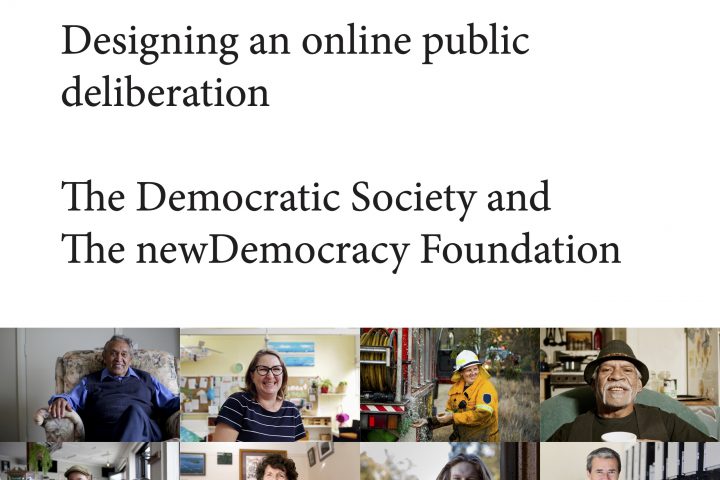In Bolivia, a political activist radically reforms the voting process for… student council elections. Who else does he convince? Revisionist History. And maybe a fancy private school in New Jersey. http://leopard.megaphone.fm/CAD9439991498.mp3 Revisionist History, Season 5, Episode 3: The Powerball Revolution Student Government Lottery in Bolivia, video courtesy of Adam Cronkright and Democracy in Practice. Adam...Continue reading
Episode 18: Tools & Techniques – ORID with Vivien Twyford
Vivien Twyford has been at the forefront of public engagement in Australasia, and internationally, for decades. She established Twyfords in 1988. In this conversation, the focus is on a particular tool, ORID. Vivien describes how she used this tool for a difficult conversation about bushfire recovery. Her approach has relevance to all situations of...Continue reading
OECD: Innovative Citizen Participation and New Democratic Institutions
You can read the full report here and highlights here. The OECD has collected evidence and data that support the idea that citizen participation in public decision making can deliver better policies, strengthen democracy, and build trust. This report focuses on representative deliberative processes in particular, as part of a wider effort by democratic institutions...Continue reading
Episode 17: Online Deliberation – Evaluation with Dannica Fleuss
This episode ranges from the democratic potential of the online world to an examination of several particular cases. Dr Dannica Fleuß and her fellow researchers looked at three different online spaces and evaluated them for the quality and forms of their communication. Do different online spaces in a deliberative system affect how people talk...Continue reading
Episode 16 Part 1: Online Deliberation – Building Group Cohesion with Chad Foulkes and Viv McWaters
This is a conversation in two parts with Chad Foulkes from Liminal by Design and Viv McWaters from Creative Facilitation, both of whom are skilled facilitators. The aim was to replicate an earlier brainstorming session that took place among a larger group of facilitators. The discussion is about how to use the ‘marginal times’...Continue reading
Episode 16 Part 2: Online Deliberation – Group Cohesion with Chad Foulkes and Viv McWaters
This is a conversation in two parts with Chad Foulkes from Liminal by Design and Viv McWaters from Creative Facilitation, both of whom are skilled facilitators. The aim was to replicate an earlier brainstorming session that took place among a larger group of facilitators. The discussion is about how to use the ‘marginal times’...Continue reading
Opinion: a new window has opened for deliberative democracy
By Luca Belgiorno-Nettis, Wednesday May 13, 2020 During this period of the pandemic, many have remarked how well the national cabinet has worked — something it rarely does. It would seem that we need a crisis for politicians to leave politics at the door. Why can’t they do it all the time? Do we really...
Episode 15: Online Deliberation – Design questions with Susanna Haas Lyons
Susanna Haas Lyons has 15 years’ experience, designing and facilitating in both face-to-face and online environments. Here she generously shares her knowledge of multiple tools, as well as expressing her deep concern about how best to achieve equity and include diverse input, as well as building civic capacity. Links for resources mentioned by Susanna:...Continue reading
Episode 14: Online Deliberation – Learning online with Leanne Piggott
Leanne Piggott is an award-winning and highly-skilled curriculum designer and university teacher. Public deliberations require deep learning by participants who come to a gathering with different levels of knowledge and understanding about a topic. As facilitators increasingly move public deliberations online, understanding the principles of transformative learning has become even more important. Anything less...Continue reading
Designing an online public deliberation
This note, created by the newDemocracy Foundation in Australia and The Democratic Society in Europe, sets out how some of these challenges can be addressed, not through a simplistic digitisation of offline methods, but by creating assemblages of tools and techniques that realise the maximum benefit of online tools while preserving the qualities that make offline deliberation a recognised gold standard.Continue reading





